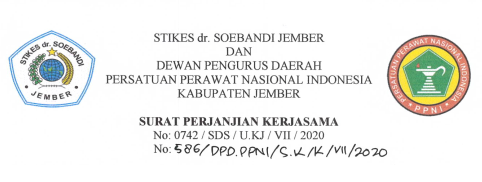The Health Literacy Level among Adult Patients in Rural and Urban Public Health Centers of Pandalungan Region: A Dual-Center Comparative Study
Abstract
Introduction: Health literacy is an important component to ensure healthy behavior which is a determinant to a person’s health and life quality. Health literacy contributes to improving a person's health to make healthy lifestyle choices, prevent disease, seek information about appropriate treatment, and determine the best remedies to treat a disease. Objective: This study was aimed to determine the differences in the level of adult patients’ health literacy in rural and urban health centers in Pandalungan region in Jember regency, East Java, Indonesia. Methods: The study was designed as comparative descriptive research. Purposive sampling was conducted on 216 adults who visited two public health centers (henceforth PHCs) in rural and urban areas which were determined based on the highest visitors of 2019 in each rural and urban region. Data was collected using HLS-EU-16Q. The data analysis were descriptive analysis, Mann Whitney U Test, and chi-square test. The level of statistical significance was set at p<0.05. Results: The study found a significant difference in the level of health literacy among adults who visited urban and rural PHCs (p<0.001). The level of health literacy in respondents who visited PHCs urban areas (132.29) was higher than those who visited PHCs rural areas (84.71). The three sub domains of health literacy showed a significant difference between rural and urban areas (p<0.001). The location of PHCs, age, education level, and occupation were the factors associated with health literacy level. Conclusion: Our findings highlight the impact of geographical areas as a driving variable to the level of adults’ personal health literacy. The role of the rural-urban areas affects the individual skills and abilities as the precursor to health literacy. Thus, reducing health literacy barriers is an essential element for promoting health equity, which further can reduce health disparities and promotes the human rights principles of nondiscrimination and equality.







